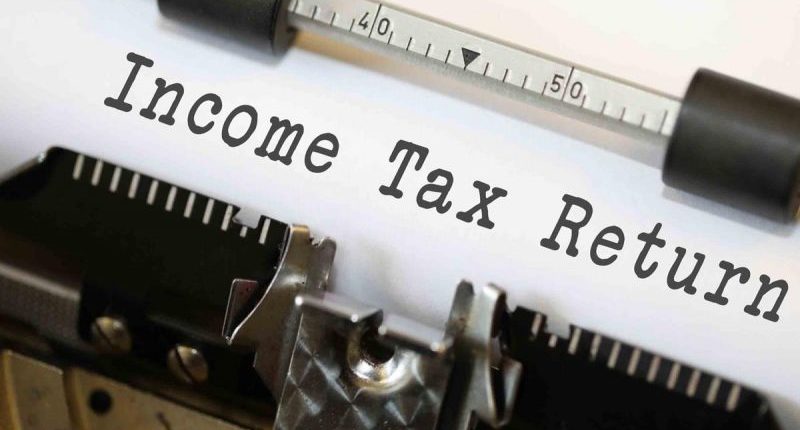Freelancers consist of self-employed people running their own show. Freelancers typically earn income from assignments and contracts carried out by them. For all practical purposes, they are considered as the owner of the freelancing business or profession carried on by them.
Let us look at the tax compliance and filing requirements for freelancers from an income tax perspective:
The freelancing income earned by a freelancer is taxed as income from business or profession. We provide below the essential steps to be taken by freelancers for reporting of their incomes:
1. Reporting of gross receipts:
You are required to aggregate all the receipts from your freelancing work done for a financial year (for example FY 2019-20). You can aggregate the receipts through your bank statements used for the business or profession and your cash receipts if any.
2. Claiming your expenses:
As a freelancer, you can claim deductions for various expenses incurred while carrying out the freelancing work. Expenses can include cab fares for visiting the client, running and repair on own vehicle, printing and stationery, telephone and internet expenses, rent for premises, depreciation on laptop and mobile, and similar other expenses.
Freelancers should keep in mind the below conditions for claiming expenses:
- The expense is incurred for carrying out the freelancing work.
- The expense is incurred during the year, for example, in the FY 2019-20 for AY 2020-21
- The expense is not personal in nature or capital expenditure.
- The expense is not incurred for any purpose, which is an offence or prohibited by law.
- Expenses paid in cash for amounts above Rs 10,000 (individually or in aggregate) per day are not allowed as a deduction.
While making claim for expenses, it is important to apportion expenses, which are incurred for both business purposes as well as towards personal purposes. You can claim the expenses proportionate to your business use. Examples of such expenses would be running and maintenance of their own vehicle and telephone charges.
Further, you cannot claim capital expenditure fully in the year of incurring it. For example, in the case of assets such as laptop, printer, vehicle, and mobile purchased during the year, the entire cost is not allowed as an expense. In respect of such capital expenses, you are entitled to claim a portion of the expense as depreciation each year. Depreciation is calculated and allowed at the rates specified in the income tax law.
Also important to note that personal expenses would not be allowed such as rent or telephone expenses for residence, travelling expenses incurred on a family vacation, medical treatment of self/family, and similar other expenses.
Also Read: ITR Filing: How to Claim Income Tax Refund Online
3. Method of accounting:
There are two methods available to freelancers to account for their income and expenses and arrive at their taxable income, namely, the accrual basis of accounting or the cash basis of accounting. Accrual accounting is more popular. The accounting method once chosen, has to be consistently followed year on year. You are not allowed to change the method often for example, with a view to save taxes or avoid taxes.
With respect to the Books of accounts to be maintained, the income tax law has prescribed certain Books of accounts for certain specified professions prescribed under Section 44AA and Rule 6F. Separately, in every other case, a freelancer is required to maintain such Books of accounts, which would enable the income tax officer to compute the taxable income of the freelancer.
A freelancer also has the option to declare income under the presumptive scheme at 50% of the gross receipts, in the case of gross receipts up to Rs 50 lakh. This scheme is introduced with a view of providing relief to small freelancers from maintaining Books of accounts and tax audit.
4. Income tax filing:
For ease of compliance, small freelancers engaged in professions such as legal, medical, engineering, architectural, accountancy, technical consultancy, interior decoration, authorised representative, and film artist can file their income tax returns in ITR-4 under the presumptive scheme of taxation. These freelancers need not furnish the details of their expenses, assets, and liabilities. They can pay tax on 50% of their annual gross receipts.
In all other cases, freelancers have to file details of their income and expenses, assets and liabilities, have to get their accounts audited and file their income tax return in ITR-3.
Freelancers are also entitled to claim deductions for investments made for tax savings under Section 80C such as PPF deposits, tax saving mutual funds, LIC premium, contribution to NPS, housing loan repayments, tuition fees of children, and so on. Similarly, they can claim deductions towards medical insurance payments and donations too.
Also, the professional or contractual receipts or income received by the freelancers would be subject to tax deduction at source (TDS). The freelancers can claim credit of the TDS against their tax payable at the time of filing of their income tax returns. While filing their income tax return, the freelancer has to aggregate income from all sources, claim deductions for tax savings and claim credit for TDS on their receipts.

An Editor by day and a sloth by night…I would love to eat and sleep throughout the day if given a chance…I enjoy reading and love my job and my team at ClearTax.





